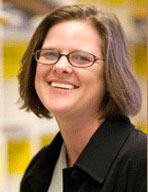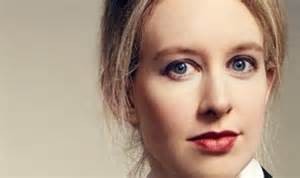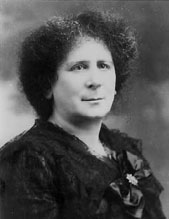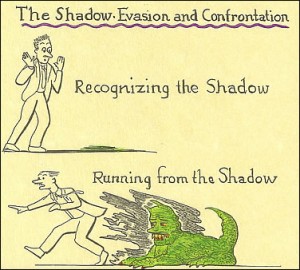Two news stories about women and science caught my eye this week, just as I emerged from researching the 1660 founding of the Royal Society.
Pauley ‘Abby’ Perrette has a new cookbook to sell, and has been doing the US media rounds to promote it. The actor from NCIS with dramatic bangs (aka fringe) and a strong social-activist streak speaks enthusiastically about how her TV character, forensic scientist Abby Sciuto, inspires young girls.
“It just opened up a door for all these young people around the world, for young girls to go into math and science and, you know, it wasn’t that long ago in this country where that wasn’t an option for girls and for women.” http://tinyurl.com/kvpr86p
I’m probably way behind the curve in only just having learned that Perrette’s geeky forensic scientist TV role inspires girls to go into science. My ‘prove-it’ mind couldn’t find hard data about how many girls have been thus moved. Yet it makes sense to me that a fictional ‘role model’ could subliminally affect girls’ career choices.
Intuition also tells me we need more feminine energy in science, whether embodied in women scientists and/or men. The structural gender imbalance we have inherited doesn’t just affect male-female headcounts of scientists, their relative pay and positions. It penetrates deep into the kind of scientific research that gets financed and supported, and the decisions that get made about scientific applications. It matters especially because scientific decision-making can now affect life and death on a grand as well as a small scale, like whether and not to build and drop atomic bombs on cities, construct and house nuclear power stations on earthquake fault-lines, develop and employ ever-increasing numbers of drones…
Hot on the heels of waking up to the ‘Abby effect’, I caught another morning TV interview, this time with a ‘real-life’ woman scientist. At age nine, future Stanford drop-out and youngest-self-made-woman billionaire, Elizabeth Holmes, wrote a letter to her father. He was concerned about uprooting his family for a job change to Houston. “What I really want out of life is to discover something new, something that mankind didn’t know was possible to do,” Elizabeth reassured Dad. Texas would suit her perfectly because “it’s big on science.”
I was a Daddy’s girl too. I don’t remember knowing what science was, let alone where it was ‘big’, at age nine, but I did try to reassure a worried father on a multitude of mundane matters. So my empathy buds opened wide to this 31-year-old who already appears to have fulfilled her childhood dream by developing revolutionary technology to bring cheap blood testing directly to the masses. http://tinyurl.com/ozd6h7p
Elizabeth Holmes dismissed the importance of her wealth, while glowing with emotion: “that young girls could connect to me as nothing but living proof that their dreams are possible”. Then her interviewer, Nora O’Donnell, no mean female role model herself, made a post-interview comment that the board of Holmes’s 10-billion-dollar company is ‘impressive’. The remark had me check the company out.
 Wow! I’ll say her board is impressive! It’s 100% male, apart from Elizabeth, with some of the most powerful political and military heavyweights in the world. Reading their names had me doing a double take. https://www.theranos.com/our-company
Wow! I’ll say her board is impressive! It’s 100% male, apart from Elizabeth, with some of the most powerful political and military heavyweights in the world. Reading their names had me doing a double take. https://www.theranos.com/our-company
I’m for individual empowerment and freedom of access to information. Bio-tech corporation Theranos’s mission reads: “By making actionable health information accessible to people everywhere in the world at the time it matters most, we’re working to enable early detection and intervention of disease and empower individuals to live the lives they want to live.”
It should delight me, right? Yes, and yet ..?
More sleuthing brought me to Michael Krieger and a bunch of others, many of them scientists, who also nurse qualms. http://tinyurl.com/mcszjzp http://tinyurl.com/nschmpf
Why is this “first consumer healthcare company” (Holmes’s words) so short on scientists and health care board members, while long on military men and politicos, none of whom have track records in freedom of information and power-sharing? Will the corporation deliver on its promise to give people cheap access to accurate information that is arguably theirs already? Will it maintain wealth and control in the hands of a covert military/political global elite? Like so much in our dualistic world, interpreting the smoke signals is not easy.
Back to the role model question and more women needed in science. In my book, a healthy 21st century needs a marriage of masculine and feminine, which does not only and always translate simply into adding more females to the dominantly male mix. We need rigorous and ‘objective’ scientific inquiry that interweaves co-creatively with human relational questions, based in personal experience, imagination and a ‘subjective’ perception of the world we want future generations to inherit. Which brings me back to the Royal Society and its structural gender imbalance.
On 28 November 1660, a group of twelve met together after a lecture by Christopher Wren and decided to found ‘a Colledge for the Promoting of Physico-Mathematicall Experimentall Learning’. Such meetings had happened informally for years, often inspired by Francis Bacon, labeled as the ‘father of empiricism’. (Bacon’s scientific credentials outshine his political maneuverings, especially those like the one that backfired in tragedy for Frances Coke, Viscountess Purbeck, in Nights of the Road).
The Society’s members, all men, agreed to meet weekly to promote knowledge of the natural world through direct observation and experiment, and by publishing the results of what they observed. In 1663, the organization received its second royal charter as ‘The Royal Society of London for Improving Natural Knowledge’. It was not the only body to promote research, development and communication of modern science in the 1600’s and beyond. It was however the first such society worldwide, and it had a profound effect upon formalization and adoption of ‘the scientific method’. https://royalsociety.org/about-us/history/
Criteria for electing future Fellows to the society were vague. Women were not explicitly omitted, but why include them? They had no access to grammar schools and universities. The first petition for female membership came nearly two and half centuries after the Royal Society was founded, in 1901. The first to be nominated and to read her own paper at the Society, former Girtonian Hertha Ayrton, was refused for having ‘no standing in law as a married woman’. Not surprising therefore that she should make statements like: “An error that ascribes to a man what was actually the work of a woman has more lives than a cat.”
The UK’s Sex Disqualification Act of 1919 rendered it illegal for an incorporated society to refuse admission on grounds of sex or marital status, yet the first female Fellows, Kathleen Lonsdale and Marjory Stephenson, were only elected in 1945. In 1947, Mistress of Girton College, Mary Cartwright,joined them.(see earlier blog https://www.nightsoftheroad.com/?p=672 )
Women were and remain a rarified breed in the Royal Society. As of May 2014, just 5% of its living Fellows and Foreign Members were women…
In the 21st century, feminist scholars have been naming and tracing long-term effects of an essentially ‘masculinist’ as well as male agenda in early modern scientific institutions. “While there is no direct ‘line of descent’ from the Royal Society of the 17th century to modern scientific experts, a clearer understanding of the historical process by which certain rhetorical devices were actively purged, while others were valorized, sheds light on the ways that scientific authority has been socially constructed, and the gendered implications of that construction. In the mid-17th century, these writers were overtly working to exclude certain forms of expression from scientific discourse, exclusions that are now transparent” (Denise Tillery) http://english.unlv.edu/faculty/tillery
 Just what ‘rhetorical devices’ were ‘actively purged’ by the Royal Society? The simple answer is anything that might acknowledge the relevance of imagination and intuition, feelings and subjective experience in scientific research and reporting. Detachment, logic, provable and replicable experiments became the only gods of science; imagination and pathos – anything relating to feeling and emotion and the experience of the observer– must be excised.
Just what ‘rhetorical devices’ were ‘actively purged’ by the Royal Society? The simple answer is anything that might acknowledge the relevance of imagination and intuition, feelings and subjective experience in scientific research and reporting. Detachment, logic, provable and replicable experiments became the only gods of science; imagination and pathos – anything relating to feeling and emotion and the experience of the observer– must be excised.
In his 1667 History of the Royal Society, its appointed historian Thomas Sprat modeled his carefully unadorned writing on the approach of the French Academy. He admired this for being ‘so masculinely, so chastely, and so unaffectedly done’. Bacon had already made an appeal to chastity and warned of the distracting dangers of pleasure: “it is no less necessary that what is admitted should be written succinctly than that what is superfluous should be rejected, though no doubt this kind of chastity and brevity will give less pleasure both to the reader and the writer”. No “tricks with words, nor frolicks with the Caprices of froathy imagination: But imployes a severe reason in enquiries into the momentous concernments of the Universe”, declared Joseph Glanvill, when hoping for admittance to the Royal Society in 1665.
The Society did not grow in a social and cultural vacuum. Strictures about keeping matters spiritual out of scientific debate made sense in a land recently torn apart by a civil war based in religious differences. An obsession with control, which led it to excise all emotions and to be ruled firmly by ‘severe reason’ and plain writing, is understandable in an organization with strong Puritan antecedents, and at a time when the restored Royal Court manifested many types of social excess.
Enhanced understanding of the unconscious and the dynamics of human shadow and projection inform our own era. Carl Jung and his successors have spelled out how “evil entails being swept away by one-sidedness, by one single pattern of behavior” (Marie Louise von Franz). Such insights from psychology help us recognize that appeals for brevity, chastity and control, fed unconsciously by underlying fears, played on the very kinds of emotion the 17th century scientists sought to exclude. At the time, this irony went significantly unnoticed and unremarked. http://centerforsacredpsychology.org/soulfood_spring2011.html
We also live now in times of transformational change, when quantum physicists, evolutionary biologists and others are extending boundaries and creating greater balance in scientific inquiry and understanding. Yet the scientific method still dominates in the mainstream and the residual effects of its inherent one-sidedness still pattern value systems, assumptions and behaviors. How often do we still hear debates on science and technology couched in terms of a need for ‘hard’ facts and dispassionate decision-making, with the labeling of ‘soft’ reactions as sentimental and emotional, or simply unaffordable in the light of cold economic and political ‘reality’?
Much of our own one-sidedness remains unconscious and can be difficult to identify and tease out in the speed and superficiality of a sound-bite culture.
A 31 year-old, self-made billionaire scientist gets lauded for her extraordinary achievements and held up as a role model for girls to believe in themselves and their ability to go into science. Elizabeth Holmes is undoubtedly remarkable. Her healthcare company may yet prove transformative. She has enough ‘grit and drive’ to earn her a place as its youngest ever member of the Horatio Alger Association. On that platform – again the only female in sight – she drew applause and clearly identified with the phrase ‘iron woman’. That reminds me of another woman, also happy to be called the Iron Lady: the first UK prime minister in my lifetime to take that nation to war…
Which then reminds me of all those military men sitting on Elizabeth Holmes’s board…
I relish our 21st century world of improved opportunity for women, in which Elizabeth Holmes can follow her dream and choose her preferred lifestyle and find success on her own terms. Yet I find myself loath to recommend that my granddaughter emulate this ‘iron woman’ whose TV close-up reveals bloodshot eyes as she declares “I work all the time and I’m basically in the office from the time I wake up, and then working until I go to sleep every day”?
Fortunately, all signs indicate that Sienna, now five, is quite capable of making her own choices about whom, if anyone, she will follow in life.









